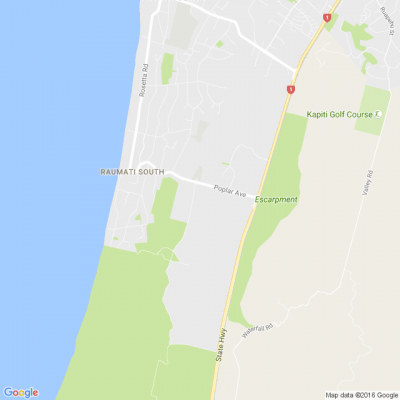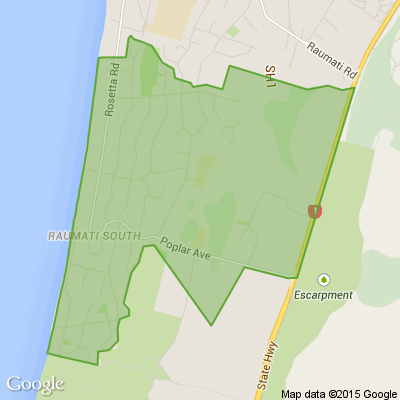Strategies For Climate Change
KCDC needs to revise its ambulance at the bottom of the cliff approach to climate change. Instead of reminding us what we need to have in a grab bag, timely attention should be given to adaptations to our existing infrastructure to enable it to cope with the severe weather events which are inevitably coming.
Chris Turver has recently recommended that the current Floodplain Management Plan be revised, and I would concur that this should be done. However, the work should not stop there. These management plan exercises are in danger of becoming tick-box exercises and are often consigned to the bottom draw to accumulate dust once they are signed off. Any strategies we use now have to be living documents. Our lives will depend upon it.
We also need to adapt existing infrastructure outside of flood plain areas to cope with extreme runoff. Parks and reserves can be re-designed to capture water in heavy rain events. Roads can be cambered to direct water to outflow areas. Landscaping and public recreation areas need to be made more permeable, to absorb water rather than turn into raging torrents across kilometers of concrete. The Waikanae River needs to have gravel removed as a matter of urgency. This could benefit the community in a number of ways. The gravel can be distributed for permeable paths, communities could have water holes constructed for recreational use.
For those who would like to understand more about these concepts, Mathew Bradbury's recent publication "Water City: Practical Strategies for Climate Change" is a valuable resource. Its available on Amazon. Katherine Ryan also interviewed Mathew on RNZ last week and this is available on the RNZ website. The strategies he advises and the evidence for these is compelling.
We not only need to "build back better", we need better existing structures also. The word is out from gardeners, landscapers and lifestyle block owners alike, that adding mulch and compost to soils absorbs water and slows down water flows. The more we can add to our soils the better. Twig mulch and bark paths are more absorbent than concrete.
The old slash and burn methods of agriculture are no longer appropriate. We should be utilizing forestry slash to provide more permeable surfaces, rather than burning it. These large scale burn offs add a lot more Co2. KCDC could help the Hawkes Bay Council by removing a few truckloads of chipped slash and providing it for local users here. Funding could also be allocated to individuals to improve water capture through tanks, swales and ponds.These strategies are, in my view, more deserving of funding than some of the current decisions that have been made. Storytelling is nice to have, but we don't want to have to tell the stories of how our families did not survive the winter of 2023 flood.

Best way to use leftovers?
I'm sure you've got some excess ham at home or cold roast potatoes.
What are some of your favourite ways to use leftover food from Christmas day? Share below.

⚠️ DOGS DIE IN HOT CARS. If you love them, don't leave them. ⚠️
It's a message we share time and time again, and this year, we're calling on you to help us spread that message further.
Did you know that calls to SPCA about dogs left inside hot cars made up a whopping 11% of all welfare calls last summer? This is a completely preventable issue, and one which is causing hundreds of dogs (often loved pets) to suffer.
Here are some quick facts to share with the dog owners in your life:
👉 The temperature inside a car can heat to over 50°C in less than 15 minutes.
👉 Parking in the shade and cracking windows does little to help on a warm day. Dogs rely on panting to keep cool, which they can't do in a hot car.
👉 This puts dogs at a high risk of heatstroke - a serious condition for dogs, with a mortality rate between 39%-50%.
👉 It is an offence under the Animal Welfare Act to leave a dog in a hot vehicle if they are showing signs of heat stress. You can be fined, and prosecuted.
SPCA has created downloadable resources to help you spread the message even further. Posters, a flyer, and a social media tile can be downloaded from our website here: www.spca.nz...
We encourage you to use these - and ask your local businesses to display the posters if they can. Flyers can be kept in your car and handed out as needed.
This is a community problem, and one we cannot solve alone. Help us to prevent more tragedies this summer by sharing this post.
On behalf of the animals - thank you ❤️









 Loading…
Loading…











